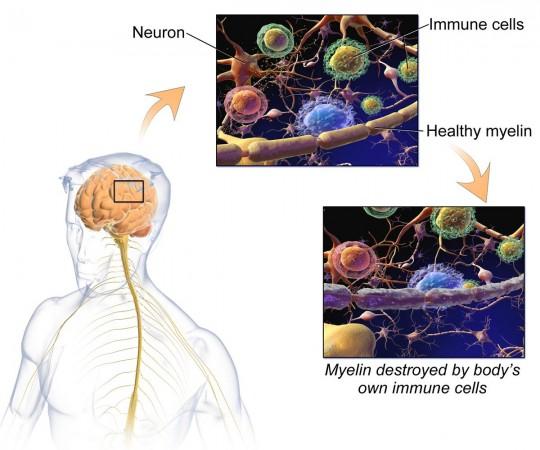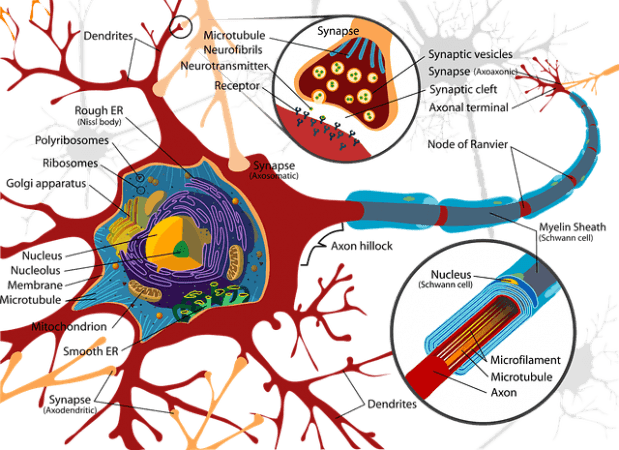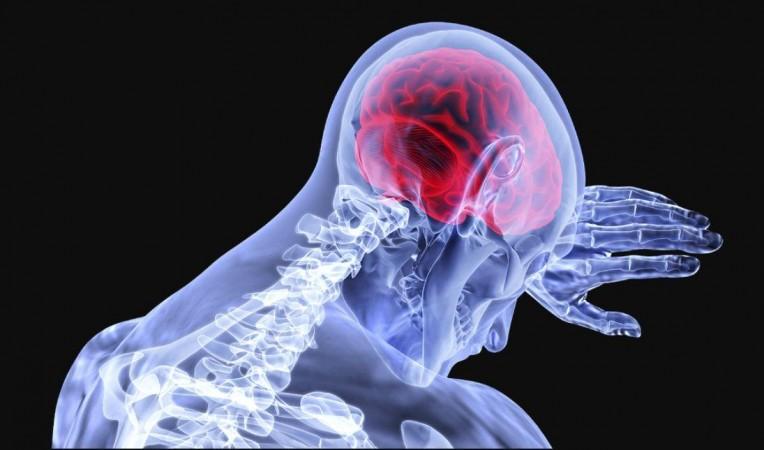Neurodegenerative diseases are among the worst illnesses that affect humans—they are irreversible and progressive. Multiple sclerosis (MS) is one such disease. With no cure in existence, being afflicted by MS is a long and potentially debilitating health journey. However, providing a glimmer of hope, scientists have now found that a pregnancy hormone may help undo the damages caused by MS to the brain.
A new UCLA Health-led study has found that the pregnancy hormone estriol can reverse the degeneration of myelin, a lipid-rich substance insulating nerve fibres, in the cerebral cortex, one of the key regions in the brain affected by multiple sclerosis. The animal study also learnt that estriol reduced the loss of neurons critical for cognitive processing and information integration.
"This is the first study to identify a treatment that could repair myelin in the cortex, undoing some of the damage caused by MS," said a statement by UCLA Health. The study was published in the journal Laboratory Investigation.
Turning the Body Against Itself

MS is a chronic disease that affects the central nervous system (CNS)—the brain and spinal cord. In people suffering from MS, their immune system attacks myelin, an insulating layer surrounding nerves in several critical areas of the CNS, including the cerebral cortex. Specifically, the immune system attacks cells known as oligodendrocytes. These cells are responsible for producing myelin that insulates axons (thin sections of nerve cells) and enables the quick transfer of neuronal communication.
The damage to the protective myelin sheath hampers the exchange of electrical signals between the brain and the rest of the body. Atrophy, or wasting away, of the cerebral cortex results in the permanent progression—and worsening in many cases—of MS symptoms such as cognitive decline, impaired mobility, visual impairment, muscular weakness, and sensory loss, among others. Currently, there is no cure for MS, and treatments are symptomatic and focus on slowing the disease's progression.

Since the early to mid-2000s, estriol has been studied as a potential neuroprotective agent in neurological disorders, particularly MS. Estriol is one of three estrogen hormones, with estradiol and estrone being the other two. During pregnancy, estriol is produced by the placenta and circulates in the maternal bloodstream at elevated levels.
The hormone is often used as an indicator of the health and development of the fetus and the placenta. Previous studies, including several led by UCLA, have found that estriol decreased brain atrophy and improved cognitive function in both MS-afflicted mice and patients. Through the current research, the scientists explored this therapeutic potential of estriol further.
Reversing the Loss of 'Protection'

For the study, the team used a preclinical model of MS known as experimental autoimmune encephalomyelitis (EAE). When the mice—in whom EAE had been induced—began exhibiting disease symptoms, they were treated with estriol. The treatment was administered through pellets that were implanted into the brains of the animals.
It was found that in mice that received estriol, the hormone prevented cerebral cortex atrophy. Analysis revealed that estriol increased proteins that synthesised cholesterol within oligodendrocytes. The scientists also observed that estriol treatment resulted in the formation of new remyelinating oligodendrocytes—a type of oligodendrocytes facilitating the repair of damaged myelin—and promoted remyelination in the cortex.

Additionally, the authors observed that estriol therapy decreased the loss of cortical layer V pyramidal neurons, cells that play a crucial role in higher cognitive functions, and their apical dendrites (branch-like extensions). The researchers also noted that the synapses of these neurons remained preserved.
Hope for A Cure
As mentioned above, there is no cure for MS. The treatments employed to address the disease focus on reducing inflammation and relapses or flare-ups and de-accelerating its progression. Currently, corticosteroids and disease-modifying therapies (DMTs) are the most widely prescribed treatments to manage the disease.
The existing treatments, particularly corticosteroids, can help slow the damage to myelin. However, they cannot reverse it. This is where the current study offers hope—the findings indicate that estriol treatment can repair MS-caused damage instead of only delaying the destruction of myelin. The collective learnings, of the current research and previous ones, on the therapeutic ability of estriol suggest that it could be a game-changer in the fight against the debilitating disease.















